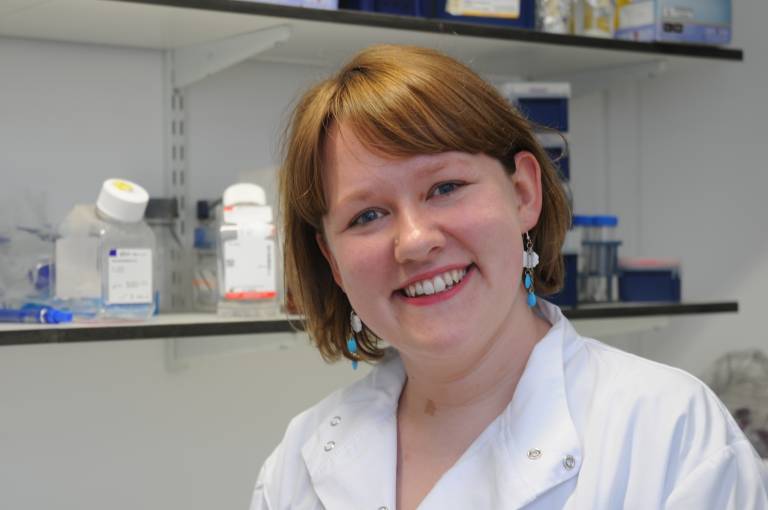Meet the expert: Professor Selina Wray

We caught up with Professor Wray to ask her about her research, what excites her most about her work and what advice she would give her younger self.
What attracted you to the area of molecular neuroscience and why is it important?
I’m a biochemist by training and still struggle to think of myself as a neuroscientist – it just so happens that the proteins I work on are important in the brain! But, it is hard for me to think of an area more important to work in than Alzheimer’s disease and related dementias: they currently affect ~850000 people in the UK and there are no disease modifiying treatments (i.e. something that will delay or stop disease onset or progression).
Individuals living with dementia often require long-term care, which has huge implications for the economy and of course we must not forget the impact on the people living with dementia and their loved ones. The only way we will get treatments for dementia is through research to understand what is causing neurons to become dysfunctional and eventually die, so that we can stop it. I’m proud and excited to be part of that effort.
Can you tell us about your current research?
We are using innovative, cutting-edge cell models to understand the earliest stages of the disease process. We work closely with clinical collaborators at the Dementia Research Centre to obtain cells from individuals with rare, genetic forms of dementia. Although these forms of dementia are rare, they are incredibly informative as it means we know exactly what the cause of that person's disease is. We ask the participants to donate a small sample of skin which we can use to grow their skin cells (fibroblasts) in the lab. We then convert those fibroblasts to stem cells, and because stem cells can become any cell type of the body, we subsequently convert them into neurons. This means we have a cell model which is patient-specific, contains their precise genetic make up, and is the cell type affected in disease. By growing these cells from people with and without dementia, we can understand what is happening at the cellular level, with a particular focus on the proteins known to accumulate in disease and how they are linked to neurotoxicity.
What aspect of your work most excites you and why?
The advantage of the models we use is that we are really looking at the emergence of disease processes in cells in a patient-specific way. We collaborate closely with clinical colleagues whose research is patient facing, and for the first time we can bridge the gap between what we do in the lab and what happens in clinic. Importantly, our models are capturing the earliest stages of disease, and if we can develop therapeutic interventions that target the very first things to go wrong these will be really powerful.
On a personal level, the cells are very beautiful and it's hard to not get excited looking at them down the microscope! Although I’m not in the lab myself much nowadays, I also really love seeing the people in my team as they progress their projects, discover new things, and the enthusiasm they bring to the lab every day makes me very proud!
What would you say to someone who is considering whether to study molecular neuroscience at UCL?
It’s a fantastic place to work – the breadth of neuroscience here is huge and even after 12 years here I still discover new research I wasn’t aware of before happening just down the road! It is a really supportive and collaborative place to work, and I love that the full spectrum of research exists here: from patients to the lab and then back into new treatments for patient benefit.
What’s the best advice you would give your younger self?
To anyone considering starting a degree or PhD in science, I would say go for it! I would keep an open mind about where it might take you, because science can open many doors and a career in academia is one of those. Specifically to my younger self, I would say enjoy it and don’t rush things! I had quite a linear trajectory from undergraduate straight to PhD, postdoc and then my own lab. Although I’m very fortunate to have been able to do that, I have colleagues who have such a diverse range of journeys to where they are now I do wonder what other things I could have tried along the way!
 Close
Close

